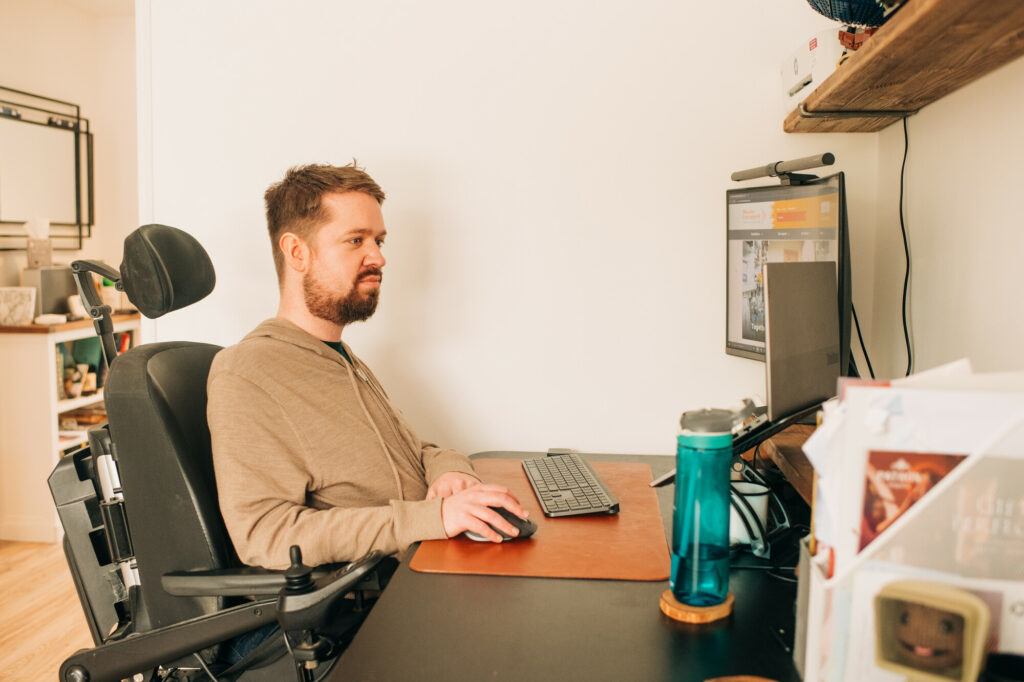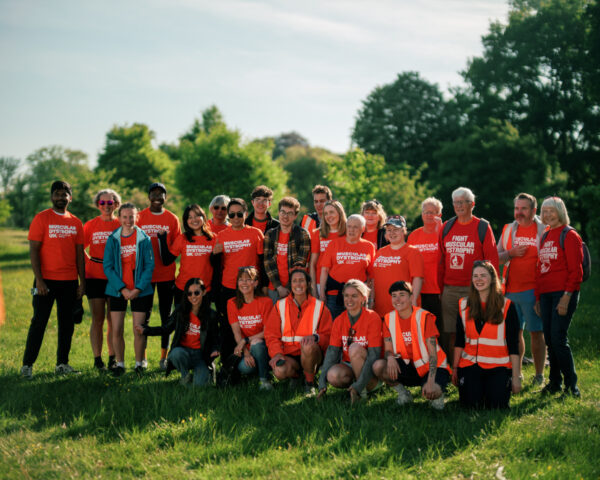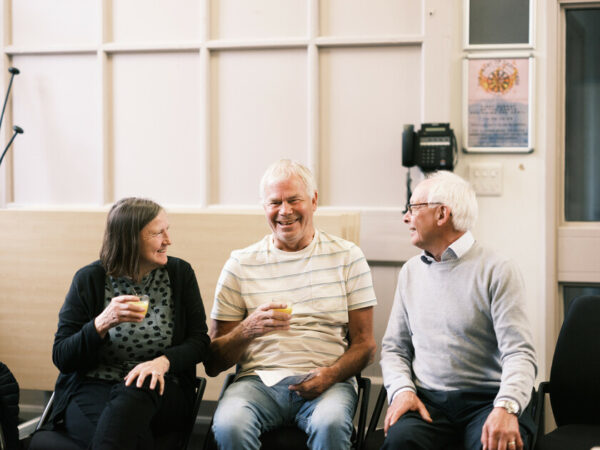We’ve launched our free employability helpline to support people living with a muscle wasting and weakening condition in the workplace.
We’re delighted to launch our new employability helpline

We can help you find suitable employment that works best for you, as well as providing advice and support to help if you’re already employed continue working in a way that is safe and sustainable.
We can also provide advice and support if you’re looking for your first job, if you’re newly diagnosed and worried about how your condition could affect your work or those whose needs are changing and who need help to continue to work.
Employability Service breakdown
Whether someone is at the start of their employability journey or years into their career we can support:
- Identify suitable job roles
- Write or update a CV
- Write a job application and/or cover letter
- Improve confidence
- Prepare you for interview
- Give information and tools to successfully advocate for your needs in the workplace
- Identify any Reasonable Adjustments that might be needed to be successful in a role
Providing expert advice
Our Employability Officer Jack McLellan joined us through our internship programme before starting officially in October 2016. Jack, 32, from London, was diagnosed with Muscular Dystrophy in 1997 and uses a wheelchair full-time.
He said: “My personal experience of trying to find work as a disabled person, coupled with my years of experience in HR, have given me a passion for improving employment opportunities for disabled people.
“We believe that having a muscle wasting or weakening condition shouldn’t stop you from becoming employed or from working in your current job. With the right support, people can have a rewarding and successful career. We’re delighted to be able to launch the employability service and would encourage people to get in contact with any questions or concerns.”
Do’s and don’ts
- Do take your time and tailor your CV and applications. Make sure you look out for Disability Confident employers.
- Do ask for reasonable adjustments. An employer wants you to be able to perform the job to the best of your ability; reasonable adjustments are there to help you achieve that.
- Do use Access to Work. It is there to help disabled people get into or remain in work.
- Don’t apply for a job as soon as you see it.
- Don’t disclose your disability or health during the recruitment process if you don’t want to. A recruiting organisation cannot ask about disability or health, unless it is an intrinsic part of the job.
- Don’t forget to ask the interviewers questions at the end of the interview. It makes you look interested and is a great opportunity to find out more about the organisation and role.
Mother of two, Meimoona, 34, from Worcestershire, was diagnosed with Limb girdle muscular dystrophy type 2B in 2008. Having secured a higher national diploma and a postgraduate in business management, she worked in customer services, but her dream job would be to work in Human Resources.
She said: “At first my employer was supportive, but things soon changed – it was exhausting trying to keep up with a hectic role. The demands increased and I felt let down that I wasn’t supported correctly.
“Looking for a new job has been challenging on my own. I discovered the Employability Service and Jack has been helping me improve my CV, advising on whether jobs are suitable and providing other job opportunities I could apply for. ”
“It’s important for people living with a muscle wasting or weakening condition to feel useful and feel like we’re contributing to society and bettering ourselves.”
- Learn more about the Employability Service musculardystrophyuk.org/employabilityservice
- Or call 0800 652 6352 Monday – Thursday, 2pm – 4pm or email employability@musculardystrophyuk.org
- Read Konstantina’s story and how the Employability Service provided support


